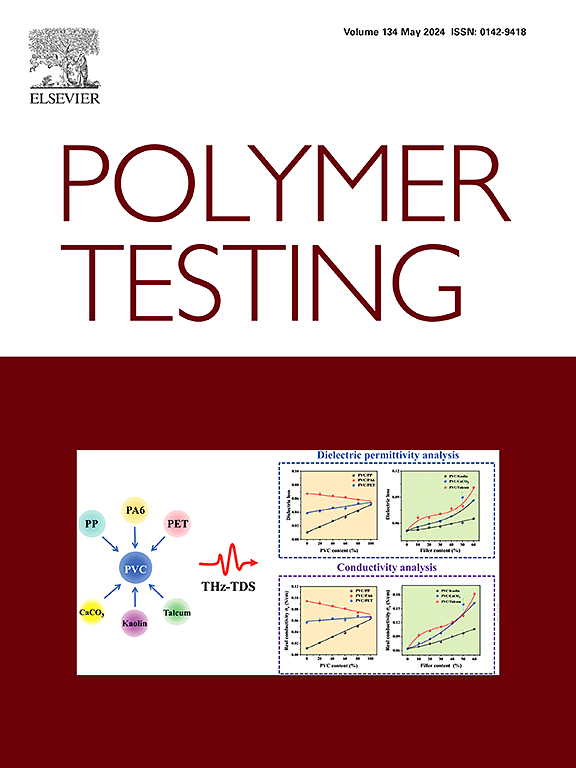Development of an integrated testing and calibration approach for fused filament fabrication of polylactic acid
IF 5
2区 材料科学
Q1 MATERIALS SCIENCE, CHARACTERIZATION & TESTING
引用次数: 0
Abstract
The Fused Filament Fabrication (FFF) technique faces challenges in mitigating defects generated in the printing process for the quality assurance of final products. To address this, accurate defect detection and identification methods are essential to use. In addition to finding ways to improve the quality and performance of FFFprinted parts, a test artefact offers a solution for identifying potential defects effectively, but it was not developed and implemented systematically yet. This study develops an integrated testing and calibration approach for mitigating defects in the FFFprinted polymer products with a new unified test artefact. This new test artefact incorporates all-in-one calibration functions, including defect identification, measurement, evaluation, and compensation. Specifically, a fitting kit is developed as part of the unified test artefact for tolerance measurement purposes with minimal effort to provide prompt feedback. Artificial Neural Network (ANN) is employed to accelerate the evaluation process for batch processing data. The devised approach and the test artefact are validated through its practical implementations into FFF of polylactic acid (PLA) and compared to other existing test artefacts in literature. Finally, a detailed defect mitigation process is highlighted via printing a PLA bevel gear set and a universal joint and significant improvements are achieved with successfully mitigating key defects.
聚乳酸熔丝制造的集成测试和校准方法的开发
熔丝制造(FFF)技术面临着减轻印刷过程中产生的缺陷以保证最终产品质量的挑战。为了解决这个问题,必须使用准确的缺陷检测和识别方法。除了寻找改善fff打印部件的质量和性能的方法之外,测试工件还提供了有效识别潜在缺陷的解决方案,但是它还没有被系统地开发和实现。本研究开发了一种集成的测试和校准方法,用于减少fff打印聚合物产品中的缺陷,并使用新的统一测试伪影。这个新的测试工件集成了所有的校准功能,包括缺陷识别、测量、评估和补偿。具体来说,开发了一个配件套件,作为统一测试工件的一部分,用于公差测量,以最小的努力提供及时的反馈。采用人工神经网络(ANN)来加速批处理数据的评价过程。通过在聚乳酸(PLA)的FFF中的实际实现,并与文献中其他现有的测试伪影进行了比较,验证了所设计的方法和测试伪影。最后,通过打印PLA锥齿轮组和万向节,强调了详细的缺陷缓解过程,并通过成功缓解关键缺陷实现了显着改进。
本文章由计算机程序翻译,如有差异,请以英文原文为准。
求助全文
约1分钟内获得全文
求助全文
来源期刊

Polymer Testing
工程技术-材料科学:表征与测试
CiteScore
10.70
自引率
5.90%
发文量
328
审稿时长
44 days
期刊介绍:
Polymer Testing focuses on the testing, analysis and characterization of polymer materials, including both synthetic and natural or biobased polymers. Novel testing methods and the testing of novel polymeric materials in bulk, solution and dispersion is covered. In addition, we welcome the submission of the testing of polymeric materials for a wide range of applications and industrial products as well as nanoscale characterization.
The scope includes but is not limited to the following main topics:
Novel testing methods and Chemical analysis
• mechanical, thermal, electrical, chemical, imaging, spectroscopy, scattering and rheology
Physical properties and behaviour of novel polymer systems
• nanoscale properties, morphology, transport properties
Degradation and recycling of polymeric materials when combined with novel testing or characterization methods
• degradation, biodegradation, ageing and fire retardancy
Modelling and Simulation work will be only considered when it is linked to new or previously published experimental results.
 求助内容:
求助内容: 应助结果提醒方式:
应助结果提醒方式:


